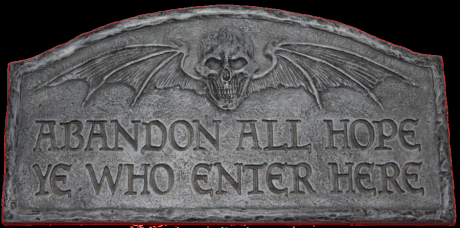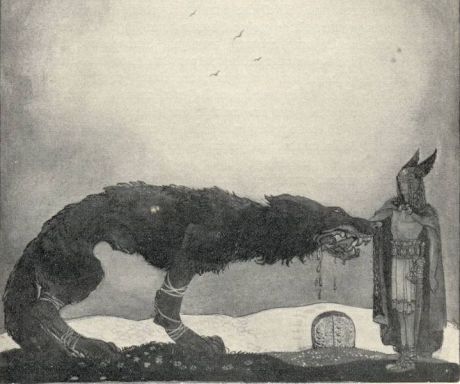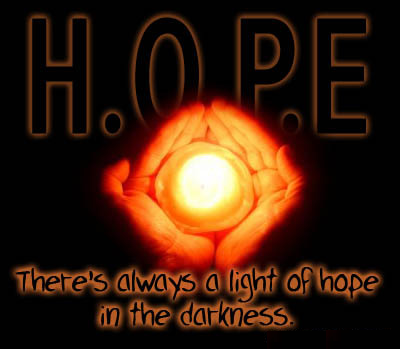The latest (2014) and most dire report of the Intergovernmental Panel on Climate Change (IPCC), which warned that we would need to virtually eliminate fossil fuel use by the end of the 21st century, softened by the comforting bromide that “ways to avoid dangerous global warming are both available and affordable” (even though some of the best and the brightest of humanity don’t believe we will make it to the end of the century without civilizational collapse), led to an on-line discussion about hope for technological “solutions” and faith in human resourcefulness in the face of such “technical” problems.
I have written about these issues in several other essays here, but I felt a need to bring attention to the all-too-human recourse to hope and optimism in the face of impending calamity.
Here are a few of the clear-headed assessments of our current predicament:
Industrial civilization headed for irreversible collapse” is a 2014 study sponsored by NASA’s Goddard Space Flight Center which has highlighted the prospect that global industrial civilization could collapse in coming decades due to unsustainable resource exploitation and increasingly unequal wealth distribution.
“It may not be absurd hyperbole – indeed, it may not be an overstatement – to assert that the most crucial location in space and time (apart from the big bang itself) could be here and now. I think that the odds are no better than 50-50 that our present civilization on Earth will survive to the end of the present century without a serious setback… Our choices and actions could ensure the perpetual future of life… or, in contrast, through malign intent or through misadventure or misdirected technology, could jeopardize life’s potential, foreclosing its human and post-human future.”
– Sir Martin Rees, Our Final Century (2003), British cosmologist and astrophysicist, Astronomer Royal, Master of Trinity College, Cambridge, and past President of the Royal Society of London (the world’s oldest scientific association, founded in 1660)
“This new century will not grow very old before we enter an age of chaos and collapse that will dwarf all the dark ages in our past.”
– Ronald Wright, Canadian author with a background in archaeology, history, linguistics, anthropology and comparative culture, whose books include A Short History of Progress and What Is America? A Short History of the New World Order.
“Methane release will accelerate exponentially, release huge quantities of methane into the atmosphere and lead to the demise of all life on earth before the middle of this century” by 2031 in the Northern Hemisphere and by 2047 in the Southern Hemisphere.
– Arctic Methane Emergency Group: Extinction by mid-Century (9 February 2012)
“Only economic collapse will prevent runaway global climate change.”
– Climatic Change Journal (February 2011)
I prefaced my remarks on easy hope and false optimism with these unsettling truths:
It is widely acknowledged, by those who are paying attention, that global humanity faces multiple, interconnected and mutually-reinforcing crises – a perfect storm – including population overshoot, peak energy, accelerating climate change, sea-level rise, a 1000-fold increase in the extinction rate, massive pollution of air and water, widespread water scarcity, soil loss and nutrient depletion, decimation of ocean fisheries, habitat fragmentation, and the conversion of the earth’s forests into commodities and “productive” land. But it is not yet widely understood that humanity may be facing challenges that are so large, complex and autocatalytic (self-perpetuating) that they are no longer mere problems in need of solutions, but predicaments that demand a response.
In other words, because “the chief cause of problems is solutions,” (Eric Sevareid, CBS news journalist from 1939 to 1977), we can no longer pretend that there are technological, political or economic solutions to humanity’s multiple mutually-reinforcing crises.
Problems vs. Predicaments
A problem is a challenge that has a solution (or several) and requires intelligence and cleverness. A predicament is a situation that has an outcome (or several potential outcomes) that human intervention cannot prevent and that requires creative response.
A predicament is a situation that is beyond mere solutions. If the developed world had taken dramatic sustained action in the 1970’s, perhaps we could have solved some impending problems. Unfortunately the science is telling us it’s too late to reverse our impacts. The converging threats are no longer merely on the horizon – they are at the gate and under our feet, and will not submit to our usual methods of throwing money and technology at things that scare us.
This is the time for “outside-the-box” thinking, for creative responses to what is already inevitable and close on the horizon, for personal and collective foresight and courage, for the willingness to surrender to forces beyond our meager control, and for reaching out to those others who are similarly swimming this great torrent in order to form “life rafts” of mutuality and community.
And I offered this alternative perspective from Native American wisdom:
Hopi Prophecy
“To my fellow swimmers there is a river flowing now very fast. It is so great and swift, that there are those who will be afraid. They will try to hold on to the shore; they are being torn apart and will suffer greatly. Know that the river has its destination. The elders say we must let go of the shore, push off into the middle of the river, keep our heads above water. And I say see who is there with you and celebrate. At this time in history, we are to take nothing personally, least of all ourselves, for the moment that we do, our spiritual growth and journey come to a halt. The time of the lone wolf is over. Gather yourselves. Banish the word struggle from your attitude and vocabulary. All that we do now must be done in a sacred manner and in celebration. We are the ones we have been waiting for.”
On Hope
verb: to want something to happen or be true and think that it could happen or be true
as intransitive verb: to cherish a desire with anticipation
as transitive verb: to desire with expectation of obtainment
Hope is an optimistic attitude of mind based on an expectation of positive outcomes related to events and circumstances in one’s life or the world at large. It is the expectation of the satisfaction of our desires.
The opposite of hope is often considered to be despair, in the typically reductionist binary thinking that has become commonplace, as if those are the only two options: blind faith or collapse into oblivion.
“When hope is used to reject reality, this is called denial, and denial usually has a darker side than the (fertile and therefore rejuvenating) darkness it initially resisted. When we accept the dark and difficult side of life, the experiences that are not rosy and peaceful, we give ourselves an opportunity to undergo transformation, a transformation that can deliver us in earnest to a new level of fulfillment, integration, and therefore healing.”
– Jack Adam Weber
In the New Testament Bible. hope means a strong and confident expectation of future reward in a better place. Paul the Apostle insisted that “we hope for what we do not see, with perseverance we wait eagerly for it”. In contrast, at the entrance to Dante’s Hell were the words, “Abandon all hope, ye who enter here”.
In ancient Greek mythology. Prometheus stole fire from the god Zeus, which infuriated the supreme god. In turn, Zeus took vengeance by presenting Pandora to Prometheus’ brother Epimetheus, with a wedding gift of a beautiful jar, and instructions to not open it under any circumstance.
Because of her innate curiosity, Pandora opened the container, and all the evils were released into the world, with Hope remaining at the bottom of the box (suggesting that hope alone could overcome all evils).
Norse mythology, however, considered Hope (Vön) to be the slobber dripping from the mouth of Fenris Wolf (who then bit off the right hand of the god Týr), while their concept of courage was cheerful bravery in the absence of hope.
Christian hope is based on faith in a beneficent or at least righteous god and the promise of a heavenly eternity, while New Age hope is based on a desire for ascension to a “higher realm of consciousness” (a secular heaven), and political hope is based on a wish for positive change on earth. In all cases, hope is for an opportunity of escape and ascension into a more elevated place. 
But, as in political campaigns, hope is much more a slogan than a promise, is aimed at the discontented, and never brings any real or substantive change. More often than not, hope leads only to disappointment.
In politics as in religion, the world is full of false messiahs and clever hucksters.
Hope is the desire to ascend out of darkness into the light, and modern culture, particularly in the United States, is built upon a fear of death, fear of darkness (including dark skin), and the urgent felt need to escape from what we don’t understand to the promise of a better future which is always just around the bend.
What our culture cannot comprehend is that the darkness is where all fertility lies, is where our inner riches dwell, is the place where the hero must descend into the lower realms to seek his/her destiny and discover his/her strengths. It is the place where we meet our demons and, accepting them as the disowned and feared parts of ourselves (our inner shadows), transform them into holy allies to assist in our life journeys.
The spiritual journey, or rite of passage, is not about transcendence or ascension (which is the paradigm of the Male God), but about immanence and descent into the womb of the Great Mother, our Earth, Gaia.
Courage (which means “of the heart”) is not about transcending one’s fears, but about facing one’s fears with equanimity and grace; and, by so doing, allowing them to melt away since they were never more than projections of our own imaginations.
We live in a paradigm dedicated to the “curing” of disease, of clever methods to fight off pathogens and eliminate uncomfortable symptoms. What is needed is a culture of healing, in which our very disabilities are alchemically transformed into strengths or paths to wisdom. Healing is not about rising up above our discomfort, but transforming our experience of discomfort into an acceptance of all our gifts, the most important of which often seem unwanted.
Pain is created by struggling against what is. Healing comes when we surrender to what is and incorporate (literally, embody) the darkness as well as the light as essential to who and what we are.
by Robert Riversong: may be reproduced only with attribution for non-commercial purposes



